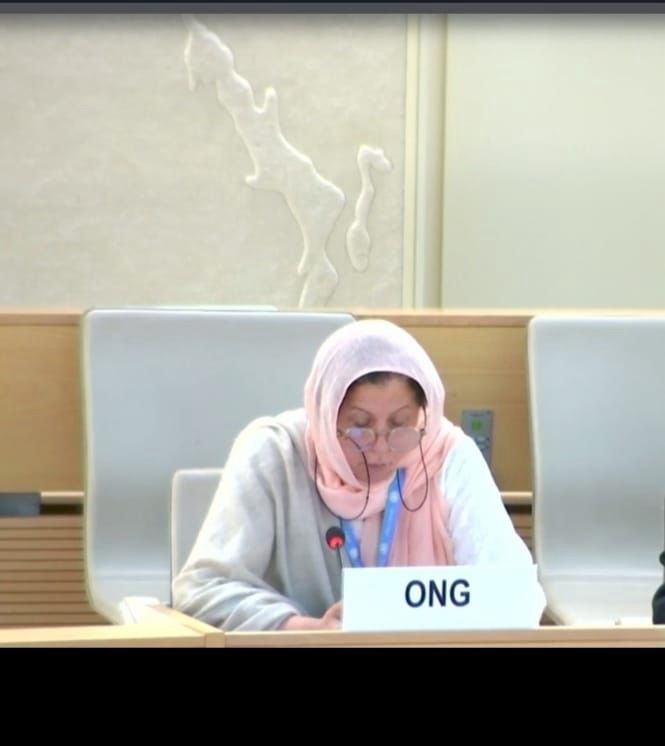ISLAMABAD, Sep 16 (APP):Repr
esentative of the Indian Muslim Women’s Union (IMWU), Shamim Shwal has called upon world leaders particularly the United Nations Secretary-General Antonio Gutters to prioritize c
limate action as a fundamental human rights issue.
Taking part in an interactive dialogue along with Special Repporteurs on c
limate change in Geneva, Switzerland Ms Shwal while referring to the alarming effects of c
limate change in Indian Occupied territory of Jammu and Kashmir, said that despite the overwhelming evidence of c
limate change’s impact there was currently no dedicated mechanism at the Human Rights Council that addresses this crisis holistically, a news release said.
Citing the Amnesty International report, she said that the humanity was under threat from c
limate change.
“Kashmiris are witnessing the alarming effects of c
limate change firsthand”, the IMWU repr
esentative said, adding that daily temperatures were rising, with fluctuations ranging from 0.3 to 1.9 degrees Celsius.
The rising temperature, she said, has dire consequences for Kashmiri communities, particularly for those who rely on agriculture and horticulture for their livelihoods.
“The maximum snowmelt has led to shrinking snow-covered areas, disrupting our agricultural practices and threatening our water resources”, Mrs Shwal added.
Stressing the urgent need to confront the c
limate crisis, particularly in the context of Indian occupied Kashmir, she said that the Special Rapporteur on c
limate change has emphasized that a safe c
limate was a vital element of the right to a healthy environment and essential for human life and well-being.
The c
limate change, she said, was not merely an environmental issue but an existential threat that undermines the full enjoyment and realization of all human rights.
She said that the people of Kashmir were deeply concerned about the transformation of their green fields, forests, and agricultural lands into industrial zones.
“This shift not only jeopardizes our environment but also creates an atmosphere of fear among the local population living in the foothills of the Himalayas”, she maintained.
She also sought the international audiences’ urgent attention towards the growing health related issues, including skin problems and other ailments, which were on the rise in Kashmir as a result of these changes.
Referring to the reports about Kashmir’s water scarcity, she said that rising temperature and fast melting glaciers were issues of serious concern that merits immediate action.
The IMWU repr
esentative urged the council to take decisive steps to address these challenges.
Seeking an end to the heavy military deployment in the Himalayas, she said, “The movement of the army and the deployment of heavy weapons not only contribute to the melting of glaciers but also exacerbate the already precarious situation faced by the local population”.
